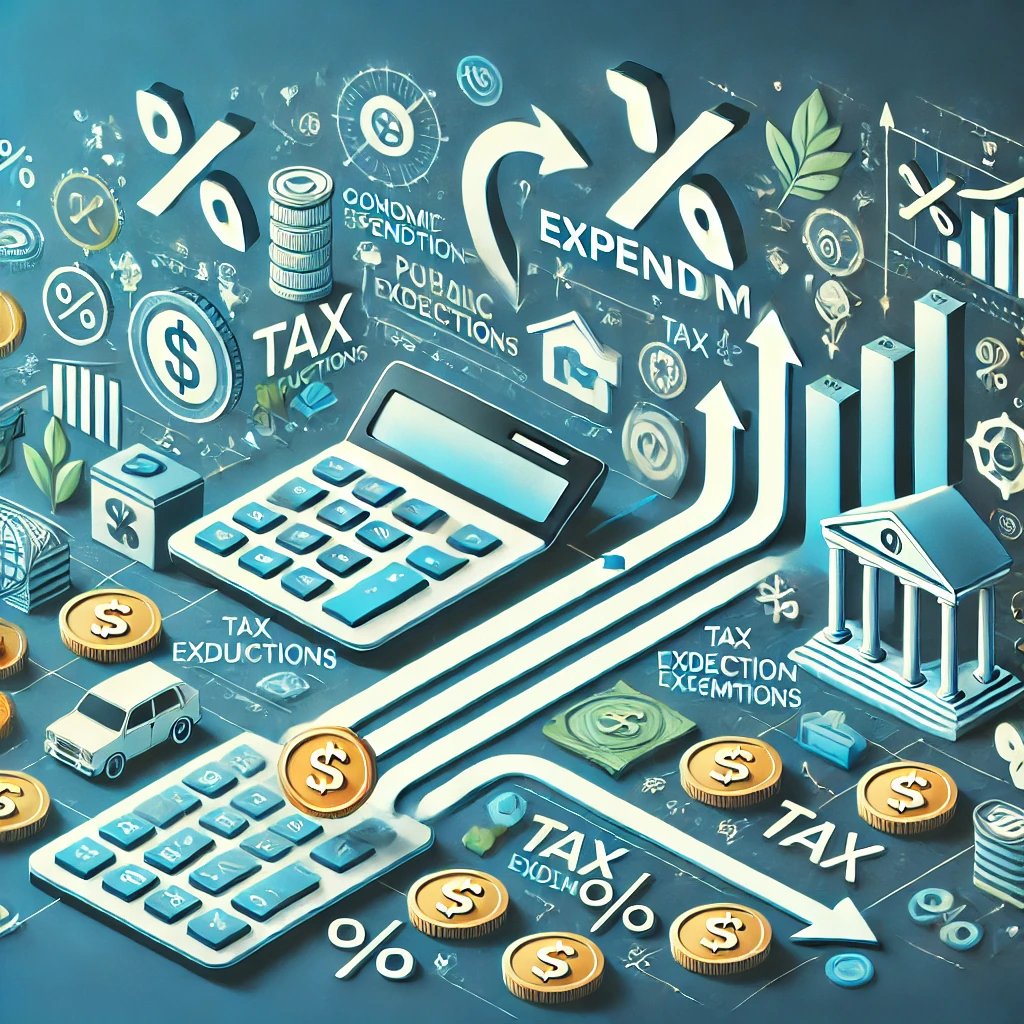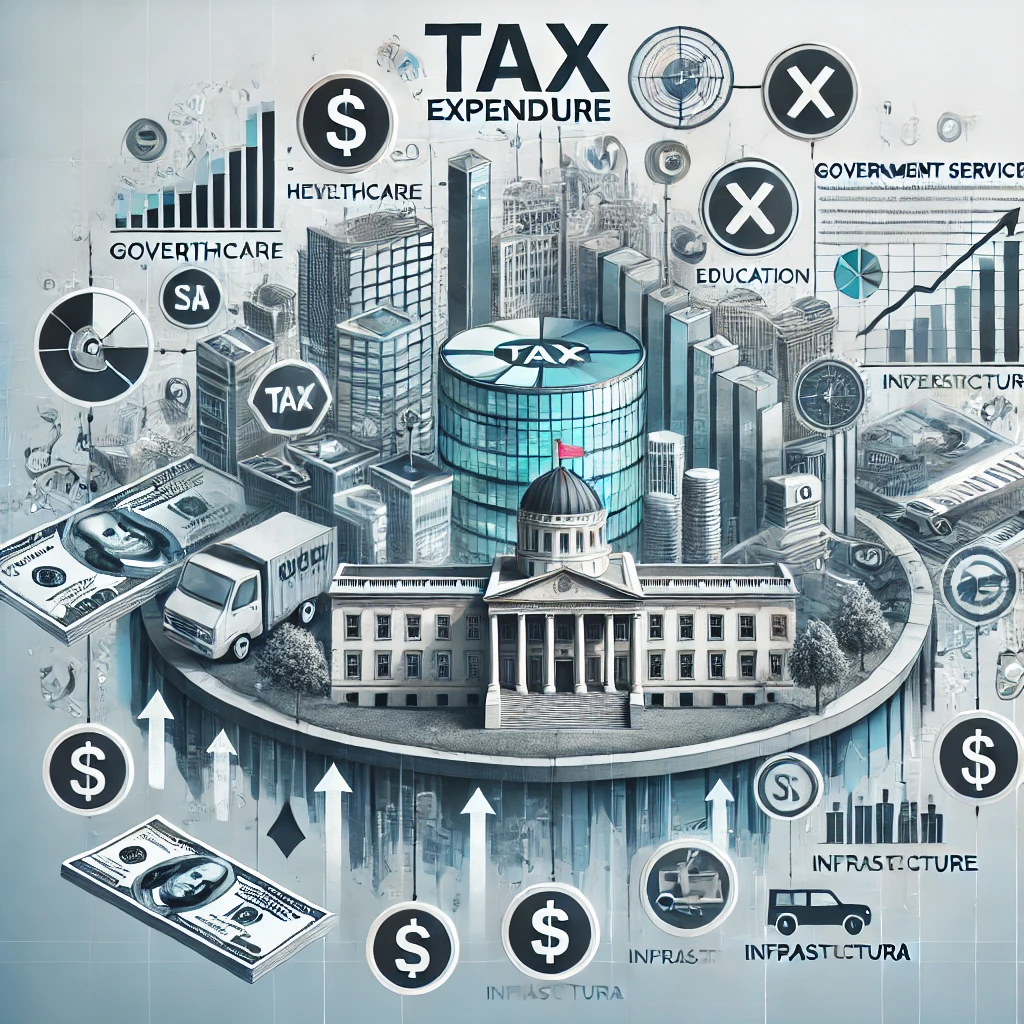Tax expenditure is an important component of government finance. Revenue loss due to special tax exemptions, deductions, or credits is known as tax expenditure. Governments support specific economic activities, businesses, or social groups by using this method. In other words, it is an indirect spending through the tax system. Unlike direct government spending, in this case, some portions of taxpayers’ money remain with them.
- The tax expenditure is never visible but highly affects the economy.
- It helps the government implement various policies without literally spending money.
- Tax expenditure benefits many people although they have no direct knowledge about it.
| GS Paper | GS Paper I, GS Paper III |
| Topics for UPSC Prelims | Basics of Taxation (Direct & Indirect taxes), Types of Tax Expenditure, Budget and its Components, Fiscal Policy |
| Topics for UPSC Mains | Impact of Tax Expenditure on Economy,Tax Policy and its Effect on Resource Allocation, Challenges in Managing Tax Expenditure |
What is Tax Expenditure?
All tax incentives, which are in the form of deductions, exemptions, and credits, provided to individuals and businesses fall into tax expenditure. These are used for specific activities such as charitable donations, investments, or retirement savings. Thus, tax expenditure indirectly supports other sectors of the economy by curtailing taxes payable.
For example, tax credits are offered to property owners or those companies that are dependent upon renewable sources of energy. These are actually a form of tax expenditure made to help lobby for pro-environmental activities.
Tax expenditure has budgetary implications. On its own, it reduces the government’s revenue. Mostly, argumentation occurs as to its fairness and efficiency. Thus, in public policy debates, knowing what is tax expenditure becomes crucial.
Income Tax VS Expenditure Tax
| Aspect | Income Tax | Expenditure Tax |
|---|---|---|
| Basis of Taxation | Charged on income or earnings of individuals and businesses. | Charged on the money spent on goods and services. |
| Taxpayer Impact | Directly reduces income, affecting savings and investments. | Directly impacts spending behavior and consumption patterns. |
| Encourages | Savings, as higher incomes get taxed progressively. | Spending on essentials, as savings remain untaxed. |
| Complexity | More complex due to various deductions, exemptions, and progressive rates. | Simpler, as it primarily taxes spending at a fixed rate. |
| Role of Tax Expenditure | Often includes deductions for healthcare, education, and mortgage interest. | Fewer direct tax breaks; focuses on essential goods exemptions. |
| Revenue Generation | Generates revenue based on individuals’ earning capacities. | Generates revenue based on consumption levels. |
| Common Examples | Personal income tax, corporate tax. | Sales tax, value-added tax (VAT). |
The Tax Expenditure List
| Category | Description | Purpose |
|---|---|---|
| Healthcare Deductions | Deductions for medical expenses, health insurance premiums, etc. | Reduces the financial burden of healthcare costs. |
| Education Credits | Tax credits for student loans, tuition fees, and education expenses. | Promotes higher education and skill development. |
| Housing Incentives | Deductions for mortgage interest and property taxes. | Encourages homeownership and investment in housing. |
| Charitable Contributions | Deductions for donations to recognized charities and non-profits. | Supports philanthropic activities and social welfare. |
| Retirement Savings | Tax breaks for contributions to pensions, 401(k)s, and retirement plans. | Ensures financial security in retirement. |
| Renewable Energy Credits | Credits for investing in solar, wind, and other renewable energy sources. | Encourages sustainable practices and green energy use. |
| Business Investments | Deductions for business expenses, equipment, and research & development. | Stimulates economic growth and innovation. |
| Childcare Tax Credits | Credits for childcare expenses, such as daycare and preschool. | Supports working parents and childcare affordability. |
| Small Business Exemptions | Tax exemptions for small and startup businesses. | Encourages entrepreneurship and small business growth. |
| Capital Gains Exemptions | Lower tax rates on long-term capital gains from investments. | Promotes investment in the stock market and real estate. |
Advantages and Disadvantages of Tax Expenditure
Tax expenditures are useful in the public finance sector. They stimulate economic activity and give relief in the form of dollars. However, tax expenditure does harm for the government by reducing revenue, increase tax code complexity, at times result in inequality, and sometimes inefficiency.
Advantages
Encourage Desired Behaviors: Tax spending encourages investment, charitable contributions, and nonpolluting activities. Tax incentives encourage individuals and businesses to contribute to areas that support public policy objectives.
Promotes Certain Economic Sectors: Tax breaks in a specific industry, such as renewable energy or housing, promote growth and jobs. Such incentives can accelerate innovation and development in the most important and critical economic sectors.
Provides Relief: Tax expenditures can be a source of relief in terms of finances since they can be claimed as deductions on healthcare, education, and housing expenses. This relief ensures that all the necessary services are affordable and accessible to the public.
Indirect Policy Tool: Using tax expenditures is a way in which governments do not directly spend; instead, they place policies through this framework. Therefore, the government can influence economic activities by making use of the tax system in an efficient manner.
Increases Investment: Removing tax burdens increases investments into research and development. Those investments enhance innovation, which enhances further growth and competition in the economy.
Disadvantages
- Decreases Government Revenue: Tax expenditures reduce government revenue since their use means that the state has lost the potential source of receipts. This reduction may hinder a government from investing in key sectors such as health and education.
- Tax exemptions: Tax breaks create many exemptions, which confuse the tax system because of numerous concessions that are very hard for any taxpayer to understand or use properly. This could lead to inefficiency and confusion
- Potential Inequality: Tax expenditures favor more high-income groups compared to low-income groups. This can create a potential increase in income inequality and limit the benefits targeted at the most needy among the citizens.
- Lack of Transparency: This indirect nature of the tax expenditure forces tough trail and evaluation. Lack of transparency can lead to improper use and resource allocation.
- It is difficult to reform: Political resistance from groups representing the intended beneficiaries can affect alteration or abolition of already existing tax expenditures. This can have an adverse effect on long-term fiscal planning and effectiveness of policy.

Importance of Tax Expenditure
Tax expenditure is an important concept in public finance. It impacts the government budget and social welfare and economic growth. Knowing what tax expenditure are can help the taxpayer in evaluating fiscal policies and helps to input a fair and efficient tax system that the policymakers and economists use.
Encourages Specific Forms of Economic Activity
Tax expenditures plays a significant role in encouraging some of the activities. For instance, investing in renewable energy or homeownership may encourage some activities. It provides tax benefits or incentives through providing deductions, credits, or exemptions to the taxpayers to contribute to the sectors requiring development. Such strategic targeting of tax benefits can surely stimulate economic growth and possibly fulfill specific policy objectives.
Fosters Social Welfare and Equity
Tax expenditures can provide relief to certain sections of the public, such as low-income families, students, and older individuals. They reduce the economic gap between citizens by offering these individuals credits and deductions for educational expenses, health costs, and housing. In this way, basic amenities are provided to the target segment, and there is social equity towards the targeted individuals who require financial support.
Facilitates Private Sector Growth
Having incentives through tax expenditures, intended to encourage businesses to research, develop, and invest, they foster economic development. Low business operation cost creates jobs as well as stimulates innovations. Thus, the positive stimulation of private business growth also follows in support for overall economic health as well as national competitiveness within the international market.
Supports Government Policy Implementation
Tax expenditures is an indirect policy tool adopted by governments where cash outlays are not provided. This way, the government is actually intervening in taxpayer behavior such as in green energy or charitable contributions. The tax system acts as a means by which the government will help guide economic activities with less struggle concerning public spending and budget allocations.
Permits Budget Flexibility
Tax expenditures form the source of flexibility in fiscal policy. They provide the scope for the modification of tax incentives upon changes in requirements in the economy. Temporary tax credits, for example, may be created by governments during economic crises to stimulate spending and investment. Such flexibility provides an appropriate dynamic response to economic challenges and creates stability and long-run budgeting.
Conclusion
In conclusion, tax expenditure is a powerful tool for shaping economic and social policy. While it offers incentives that encourage investments, support key sectors, and provide financial relief, it also presents challenges, such as revenue loss, complexity, and potential inequality. Effective management and evaluation of tax expenditures are crucial to ensuring that these benefits outweigh the drawbacks. A well-balanced approach can maximize its positive impact on both the economy and society.
| Tax Expenditure UPSC Notes |
| 1. Tax expenditure refers to revenue losses due to special exemptions, deductions, or credits in tax law, reducing the overall tax burden. 2. It provides targeted benefits to specific groups, such as individuals or businesses, to encourage certain economic activities or investments. 3. Tax expenditures are a form of government spending implemented through the tax code rather than direct government outlays. 4. These expenditures include exemptions, deductions, reduced tax rates, and credits designed to promote policy goals like economic growth or social welfare. 5. They can significantly impact government revenue, leading to fiscal deficits if not carefully monitored or regulated. 6. The effectiveness of tax expenditure policies is debated, as they may benefit certain sectors more than others, creating inequalities. 7. Transparency and accountability in evaluating tax expenditures are crucial for maintaining a balanced and equitable fiscal policy. 8. In India, the tax expenditure report in the budget outlines these concessions, helping assess their impact on revenue and policy objectives.4o |



